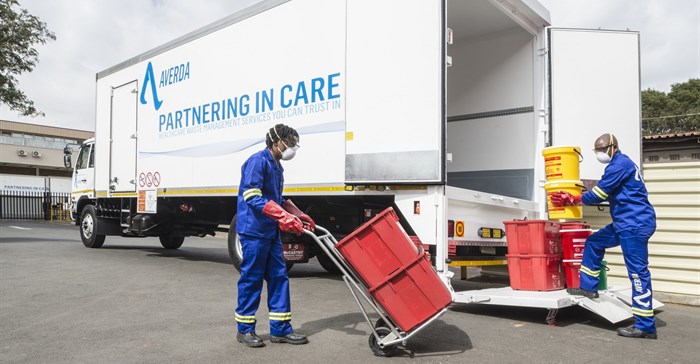
Top stories






More news


Marketing & Media
Ads are coming to AI. Does that really have to be such a bad thing?














"Many corporates – computer firms, banks, and mining houses – are large originators of sanitary waste,” says Barnard. “These corporations have corporate responsibilities, corporate identities, and corporate reputations and, as responsible corporate citizens, they ought to be asking their sanitary waste service provider whether their waste is being responsibly disposed of."
While sanitary waste is officially classified as “hazardous waste”, it should be subject to the same regulations and treatment processes as Health Care Risk Waste (HCRW), according to Averda. The latest draft regulations for HCRW management make a point of including sanitary waste, supporting the company's recommendation that more responsibility be taken by sanitary waste originators and the companies they rely on for its disposal.
The Department of Water and Environmental Affairs requires that all hazardous medical waste (which falls under “Health Care Risk Waste”), must be incinerated. However, the majority of sanitary waste collected from corporations in both large and small quantities undergoes debatably inadequate chemical treatment before being consigned to precious landfill space.
“We believe in going beyond the minimum legal requirements to make sure that sanitary waste – which includes sensitive substances such as blood – is treated in such a manner that it is disinfected beyond a shadow of a doubt,” says Barnard. “It’s about ensuring that the treatment process renders the waste harmless and unable to infect anybody.”
The minimum requirements for the disposal of hazardous waste, set by the South African Bureau of Standards (SABS), stipulate that individuals and organisations are responsible for the eventual fate of the waste they generate and a ‘cradle-to-grave’ responsibility is placed on the originator for the safe management of their waste.”
This is a principle that Averda has embraced as its own,” says Barnard. “It’s about tracking traceability.”
The ability to accurately track waste has driven Averda to deploy radio frequency identification (RFID) technology in order to fully automate the waste tracking process. RFID uses electromagnetic fields to identify and track specific tags – in this case, tags attached to HCRW containers – resulting in a more accurate, efficient and compliant HCRW management system.
“RFID will give us the ability to record transactions from inception to completion in a manner in which human intervention is largely absent, along with human error,” says Barnard.